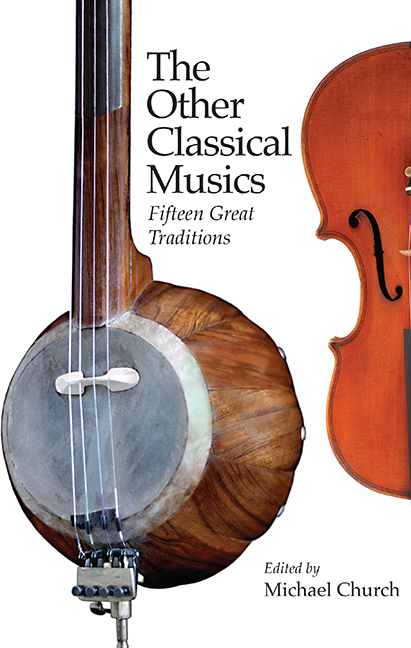Book contents
- Frontmatter
- Dedication
- Contents
- List of Illustrations
- List of Contributors
- Preface and Acknowledgements
- Introduction
- Maps
- 1 Thailand, Laos, Cambodia, Vietnam
- 2 Java
- 3 Japan
- 4 China: The Guqin Zither
- 5 Chinese Opera
- 6 North India
- 7 South India
- 8 Mande Jaliyaa
- 9 North American Jazz
- 10 Europe
- 11 North Africa and the Eastern Mediterranean: Andalusian Music
- 12 The Eastern Arab World
- 13 Turkey
- 14 Iran
- 15 Uzbekistan and Tajikistan
- Notes
- Bibliographies
- Index
8 - Mande Jaliyaa
Published online by Cambridge University Press: 29 May 2021
- Frontmatter
- Dedication
- Contents
- List of Illustrations
- List of Contributors
- Preface and Acknowledgements
- Introduction
- Maps
- 1 Thailand, Laos, Cambodia, Vietnam
- 2 Java
- 3 Japan
- 4 China: The Guqin Zither
- 5 Chinese Opera
- 6 North India
- 7 South India
- 8 Mande Jaliyaa
- 9 North American Jazz
- 10 Europe
- 11 North Africa and the Eastern Mediterranean: Andalusian Music
- 12 The Eastern Arab World
- 13 Turkey
- 14 Iran
- 15 Uzbekistan and Tajikistan
- Notes
- Bibliographies
- Index
Summary
Ranged over the State House lawn are perhaps fifty musicians. Some are acrobats doing hand-stands, others are women's groups singing to the melodic thump of gourds. Two flautists, one playing left-handed, accompany a singer, his head tilted high. This is a naming ceremony, held for the president's new-born. The largest contingent is a mixed vocal and instrumental ensemble; one man plays a guitar while others pluck lutes. At the centre sit several women forming a chorus. Some gently strike a tubular bell, while in front of them are three xylophonists and a dozen men positioned behind tall harps: this combination of instruments marks out Mande professionals. There is no conductor, and there was no rehearsal, but the lead singers are clearly in command. One man, starting high in his range, sings a cascading and undulating solo line which the women's chorus finishes in unison. Now a celebrated female singer takes over, her strong voice needing no microphone. With their majestic sound and heroic content, the melodic lines float in free rhythm over an instrumental ground: this is performed in unison and yet not in unison, as each player mingles his variant, with some adding a virtuoso flourish. At the close, with one of the musicians announcing on his behalf, the president appears and presents money for distribution to all.
FEW people, if asked to identify the classical musics of the world, would readily point to Africa. However, the scene described above – if imagined in the setting of Africa's pre-colonial kingdoms and empires – does take on the courtly sheen of a classical tradition, and gives a hint of its existence. The reason most African classical-music traditions have escaped our attention is that they lack many of the usual markers. For example, African musicians have no use for notation – but then neither do classical musicians in many other cultures, except as a pedagogical aid. And should not a classical tradition be supported by a body of theoretical writing? In Africa, not only is the music transmitted aurally, the languages are too, so there is no written theory. Western listeners to African music typically notice constructs of melody, rhythm and metre that seem familiar, yet the musicians say nothing of these. In fact, an oft-repeated observation is that African musicians don't even count (as in identifying a downbeat), let alone think in terms of metre.
- Type
- Chapter
- Information
- The Other Classical MusicsFifteen Great Traditions, pp. 178 - 197Publisher: Boydell & BrewerPrint publication year: 2015



